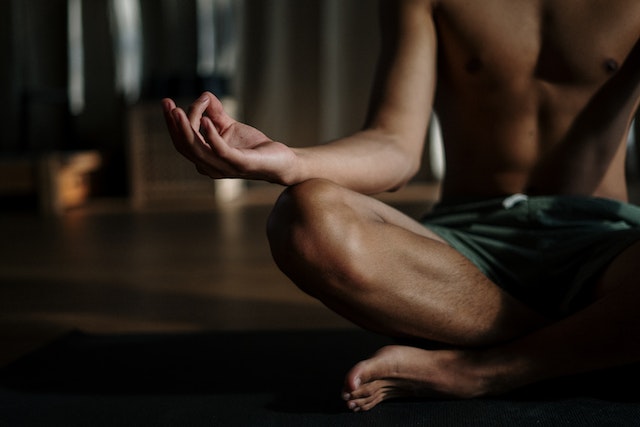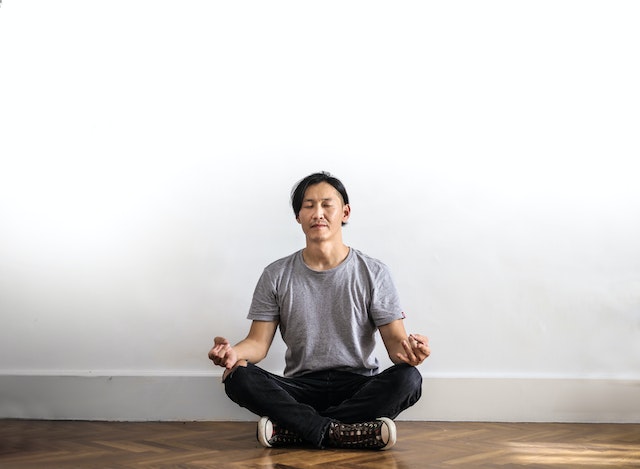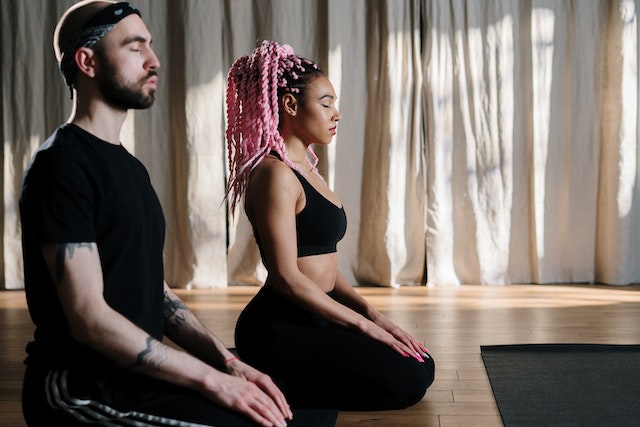It's hard not to feel stressed these days, whether you're concerned about work, family, or world events. It can also be hard to release stress and get your mind back on track, which increases your risk of experiencing a physical or mental health issue.
If you're looking for an all-natural method of relieving stress, meditation is the way to go. This guide explains more about the practice, as well as how it can benefit you.
What Is Mediation?

An ancient practice, meditation has been in use for thousands of years. The goal is to focus your mind and clear it of extraneous thoughts for improved mental wellness. It can entail deep breathing, repeating a mantra (a word or phrase that is supposed to help with concentration), or just sitting quietly.
Additionally, there are different types of meditation one can use. Visualization entails thinking about pleasing images to induce a relaxed and happy feeling. Conversely, mindful meditation involved being fully present and "in the moment" to boost self-awareness. While it's also a form of martial arts, tai chi uses gentle gestures performed slowly that can also have relaxing effects.
What Benefits Does It Offer?

When you make it a regular part of your lifestyle, meditation offers certain key benefits:
- Stress can exacerbate certain medical conditions, such as anxiety and chronic pain problems. Meditation can reduce stress and have a positive effect on underlying medical conditions.
- Reducing stress can also have other physical effects, including decreased heart rate, reduced blood pressure, and enhanced sleep quality.
- When worried, meditation can help clear the mind and allow you to make decisions reasonably.
- Meditation also offers mood enhancement, which can boost the quality of life and improve relationships with others.
Is Meditation Right for Everyone?

Most people can derive some benefits from meditation. However, it can also be detrimental when used incorrectly. It can take some time to experience a peaceful and relaxed feeling, and people can sometimes become frustrated when it doesn't happen quickly. In this case, you must allow yourself time to get acclimated to the practice.
Additionally, meditation can be problematic for people who fall victim to procrastination. You can avoid this time trap by scheduling meditation at certain times each day, such as in the morning or later at night before bed. Keep in mind that each person is different, so it's important to find a strategy that works best for you.
How Can Beginners Get Started?

Getting started with meditation is often the most challenging aspect. Fortunately, there are some steps you can take to speed up the adjustment process. Begin by establishing a short time limit, such as five minutes. That way, you won't feel pressured if you're not able to get in the right frame of mind.
Find a quiet, comfortable place in your home, a place where you can fully unwind uninterrupted. Any position is acceptable, provided that you feel comfortable. For instance, some people choose to sit while others might lie down. The most important factor is that you feel relaxed.
Focus on your breathing when getting started. In the event your mind begins to wander, which is a natural occurrence when meditating, re-focus on your breathing. Don't get discouraged if your mind wanders frequently when first getting started, as this is a common occurrence for beginners.
In terms of how often you should meditate, that's a personal decision that you must make on your own. However, people derive the most benefits from the practice when they do it on a regular basis. Accordingly, try to take some time each day to meditate, even if it's only five to ten minutes.
Life can be pretty hectic and stressful for most people, but meditation is a great tool to have in your arsenal. Along with reducing stress, it can also improve your thinking and boost your overall wellness to enhance your quality of life.

